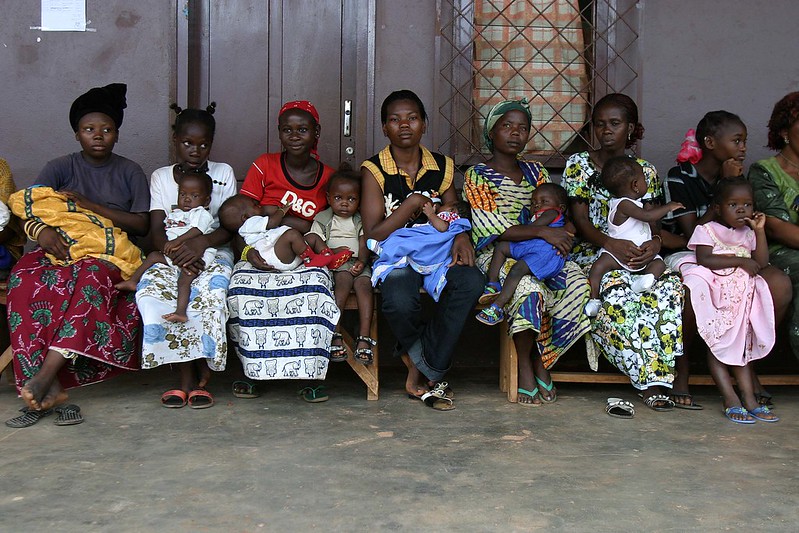Spreading Awareness About Fistulas in Zambia
 Fistulas in Zambia are still a devastating problem for impoverished, young mothers despite being preventable. An obstetric fistula occurs when a mother endures prolonged (oftentimes up to five days long) labor in which obstruction occurs. This obstruction then cuts off the blood supply and causes tissue death. Tissue death leads to holes between the vagina and bladder or rectum. Without treatment, fistulas can mean a woman will “uncontrollably leak urine, stool or sometimes both” for a lifetime. The Fistula Foundation and other organizations seek to help women suffering from fistulas in Zambia.
Fistulas in Zambia are still a devastating problem for impoverished, young mothers despite being preventable. An obstetric fistula occurs when a mother endures prolonged (oftentimes up to five days long) labor in which obstruction occurs. This obstruction then cuts off the blood supply and causes tissue death. Tissue death leads to holes between the vagina and bladder or rectum. Without treatment, fistulas can mean a woman will “uncontrollably leak urine, stool or sometimes both” for a lifetime. The Fistula Foundation and other organizations seek to help women suffering from fistulas in Zambia.
The Cost of Fistula Surgery
The fistulas come with a myriad of infections and chronic pain and can even cause nerve damage to the legs. While fistulas in Zambia are completely preventable and treatable, there are significant barriers to care for mothers. The surgical costs range from $100-400, an expense that is often far higher than what the majority of patients can afford.
4 Factors That Increase the Risk of Fistulas
- Malnutrition: Persistent malnutrition is linked to the development of a smaller pelvis, which increases the risk of an obstructed delivery, potentially leading to the formation of a fistula.
- Child Marriage: Early motherhood means the narrower pelvises of underdeveloped girls make an obstructed delivery more likely.
- Lack of Education: When young women are pulled out of school for marriage and childbearing without proper knowledge about their bodies, the delivery process and their reproductive systems, health consequences ensue. A lack of proper reproductive health education leads to a lack of awareness about the preventability and treatability of fistulas.
- Poverty: Poverty augments the chance of food insecurity, younger marriage, childbearing and sacrificing a woman’s education for family duties. Even more importantly, poverty makes access to healthcare that much more difficult. Fistulas are also more prevalent in births that take place outside of medical facilities as women undergoing an obstructed delivery are unable to get a C-section or emergency medical assistance.
In wealthier countries that properly address these four issues, fistulas are virtually unheard of, showing that poor health outcomes and poverty are inextricably linked.
Stigmatization of Fistulas in Zambia
While the medical ramifications of fistulas are devastating, these consequences come in conjunction with complete social ostracization and shame. Husbands often view the typically stillborn births that come with fistulas as a failure of the mother. It is very common for husbands to shame and abandon their wives, labeling the woman’s medical issues as personal failures.
Doctors often do not adequately inform women with fistulas that they have a legitimate medical issue. The abandonment from their husbands is soon joined by the same treatment from family and friends. The isolation and stigma increase the risk of depression among women suffering from fistulas. Lack of proper awareness and education means fistulas have become a source of shame. Hence, many women suffer in silence for decades, even until death.
Spreading Awareness Through Radio
In 2017, the Fistula Foundation, a nonprofit dedicated to providing impoverished young women with proper and free medical attention for fistulas, launched a radio program to educate communities about fistulas in Zambia. The program reached extensively into many provinces of Zambia and mobilized many women to seek proper medical care to repair their fistulas at the six Zambian fistula care centers the organization established to perform the reconstruction surgery for free.
In 2019 alone, the Fistula Foundation performed 319 fistula repair surgeries, all free of charge. In total, the Foundation has aided in the provision of 774 surgeries. The Fistula Foundation also partnered with the famous Zambian singer Wezi to air a song about the dangers of fistulas. The spread of this song, through both radio and CDs, has created a surge in Zambian women seeking treatment. As a direct result of Wezi’s song, 56 women have sought treatment.
Grassroots Activism
In conjunction with the awareness campaigns and Wezi’s song, the Fistula Foundation has encouraged grassroots movements like the Safe Motherhood Action Group (SMAG) to work with community volunteers to spread awareness to help prevent fistulas and end stigma. SMAG leads discussions within communities about the dangers of child marriage with regard to the increased rates of fistulas in young mothers, the necessity of keeping girls in school and the importance of delivering children in medical facilities. SMAG has implemented more than 3,000 community outreach programs, reaching more than 90,000 people with crucial information about fistulas and interconnected social issues.
The Fistula Foundation heavily relies on community leaders to spread the word, designating them the “entry points” to communities and change. The organization’s work highlights the importance of creative community engagement and education initiatives in promoting proper care and destigmatization of fistulas in Zambia.
– Jaya Patten
Photo: Flickr
